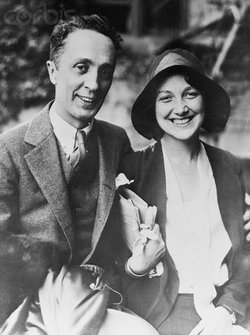Deborah Solomon, American Mirror: The Life and Art of Norman Rockwell
 |
| Norman Rockwell and Mary Barstow |
I am reminded of my granddaughter, now in middle school, who like Mary Barstow loves literature and hates math, although she gets straight A's in both subjects. Not everyone who is good with words is bad with numbers, and vice versa, but that is often the case. I don't think that is the point Solomon is making, however. Rather she is speaking about how fractions are about dividing numbers down into smaller bits, while literature is about uniting the small bits of character's lives "into a seamless whole."
No novel, no matter how long it may, tells the whole story. An author cannot include a character's every thought, experience or action. Rather the novel is made up of fractions of characters's lives, assembled in a way that makes them whole.
No comments:
Post a Comment